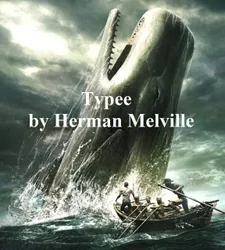Autobiographical novel. "Omoo is so close a sequel to "Typee," that it almost forms a part of that work. Herman Melville's second book appeared in 1847, published (as its forerunner had been the year before) simultaneously in London and New York. In 'Omoo,' as Mr. Arthur Stedman says- 'We leave for the most part the dreamy pictures of island life, and find ourselves sharing the extremely realistic discomforts of a Sydney whaler in the early forties.' Both books are without a doubt largely autobiographical, and based on the writer's early sea-adventures, of which his voyage in the "Acushnet" in 1841-2 was the most memorable." According to Wikipedia: "Herman Melville (August 1, 1819 – September 28, 1891) was an American novelist, short story writer, essayist and poet. His first two books gained much attention, though they were not bestsellers, and his popularity declined precipitously after only a few years. By the time of his death he had been almost completely forgotten, but his longest novel, Moby-Dick — largely considered a failure during his lifetime, and most responsible for Melville's fall from favor with the reading public — was recognized in the 20th century as one of the chief literary masterpieces of both American and world literature."

Moby Dick
Herman Melville
audiobookbook
Bartleby lo scrivano
Herman Melville, Fabio Gregorio
audiobook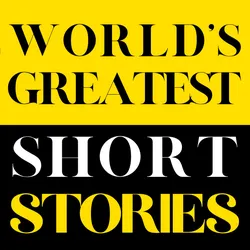
World's Greatest Short Stories
Daniel Defoe, Benjamin Franklin, Washington Irving, Mateo Falcone, Charlotte Bronte, Mary Shelley, Nathaniel Hawthorne, Nikolai Gogol, Edgar Allan Poe, Fyodor Dostoyevsky, Charles Dickens, Herman Melville, Mark Twain, Guy de Maupassant, Oscar Wilde, Leo Tolstoy, H.G. Wells, Ambrose Bierce, Stephen Crane, Kate Chopin, Jack London, E.M. Forster
audiobook
Billy Budd : Die Geschichte eines Seemanns
Herman Melville
book
Der Hochstapler : Ausgabe in neuer Übersetzung und Rechtschreibung
Herman Melville
book
Die verzauberten Inseln : Ausgabe in neuer Übersetzung und Rechtschreibung
Herman Melville
book
Benito Cereno : Die Geschichte einer Schiffsmeuterei
Herman Melville
book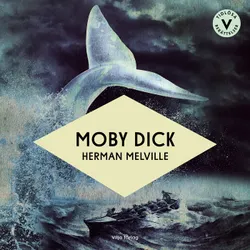
Moby Dick (lättläst)
Herman Melville
audiobookbook
Moby Dick - Livre Audio
Herman Melville, Livres audio en français, Moby Dick
audiobook
101 Great American Poems : To My Dear and Loving Husband, The Planting of the Apple-Tree, Concord Hymn, The Arrow and the Song, Alone, Annabel Lee and others
Anne Bradstreet, Phillis Wheatley, William Cullen Bryant, Ralph Waldo Emerson, Henry Wadsworth Longfellow, Edgar Allan Poe, Abraham Lincoln, Oliver Wendell Holmes Holmes, Herman Melville, Walt Whitman, Frances E. W. W Harper, Emily Dickinson, Ella Wheeler Wilcox, Ernest Lawrence Thayer, Edwin Arlington Robinson, Stephen Crane, James Weldon Johnson, Paul Laurence Dunbar, Gertrude Stein, Vachel Lindsay, Claude McKay, Countee Cullen, Amy Lowell, James Oppenheim, Elizabeth Barrett Browning, Emma Lazarus, Louisa May Alcott, Ellis Parker Butler, Hugh Henry Brackenridge, Matthew Arnold, William Butler Yeats, William Blake, Sara Teasdale, William Barnes
audiobook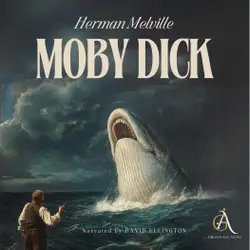
Moby Dick - Audiobook
Herman Melville, Classic Audiobooks, Moby Dick
audiobook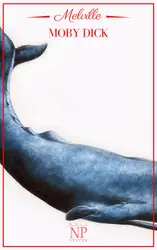
Moby Dick : Gekürzte und kommentierte Fassung
Herman Melville
book

